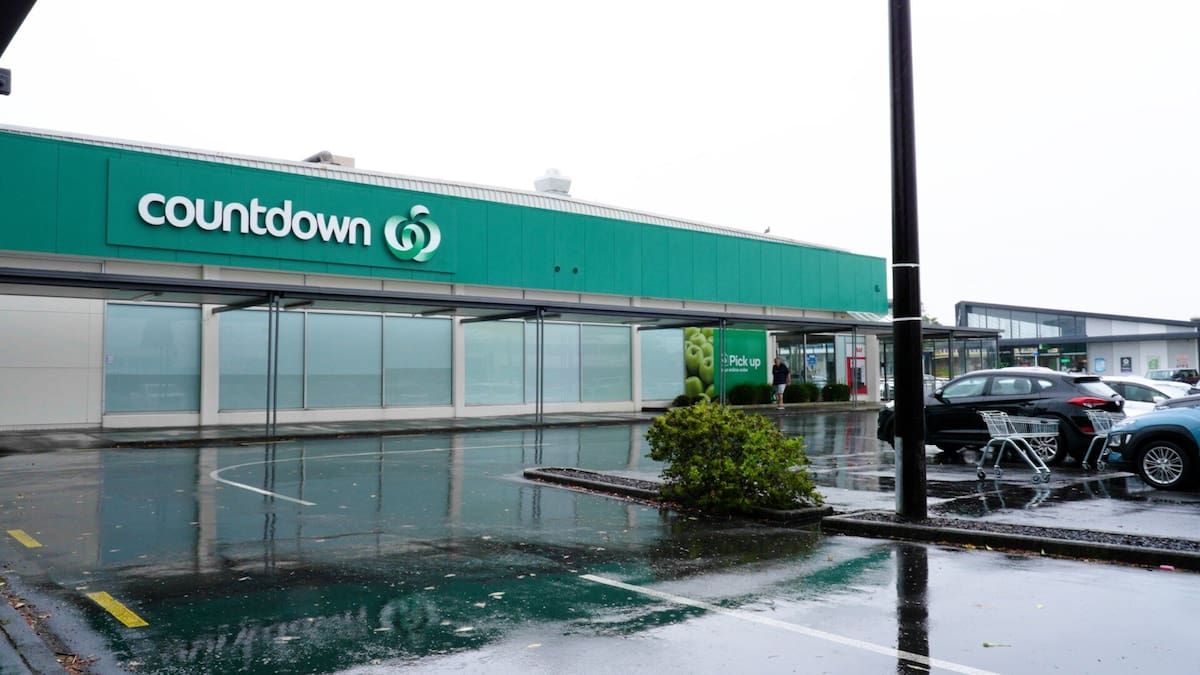15,000 Aucklanders Face Year-Long Supermarket Drought
Editor’s Note: News broke today about the unprecedented supermarket shortage impacting 15,000 Auckland residents. This article delves into the causes, consequences, and potential solutions to this critical issue.
Why This Matters: A Community's Struggle for Food Access
The news that 15,000 Auckland residents face a full year without a local supermarket is a stark reminder of the critical role accessible grocery stores play in community well-being. This situation highlights vulnerabilities in food supply chains, infrastructure deficiencies, and the potential for significant social and economic repercussions for affected individuals and families. This article will explore the key aspects of this crisis, analyze its impacts, and examine potential solutions. The lack of access to affordable, fresh food directly impacts health, finances, and community cohesion.
Key Takeaways
| Point | Description |
|---|---|
| Scale of the Problem | 15,000 Aucklanders lack supermarket access for a year. |
| Impact on Residents | Increased food costs, reduced food choices, potential health consequences. |
| Underlying Causes | Planning failures, lack of development, changing demographics. |
| Potential Solutions | Mobile grocery stores, community initiatives, expedited supermarket development. |
15,000 Auckland Residents: A Year Without a Supermarket
The lack of a nearby supermarket for 15,000 Auckland residents represents a significant challenge. This unprecedented situation is impacting a large swathe of the city's population, forcing many to travel long distances for essential groceries, incurring higher transportation costs and potentially sacrificing access to fresh produce and affordable food options. The current situation underscores the need for better urban planning and proactive measures to ensure accessible food resources for all communities.
Key Aspects of the Crisis
- Geographic Isolation: The affected area is geographically isolated, lacking adequate public transport links to existing supermarkets.
- Economic Disadvantage: Many residents in this area are from lower socioeconomic backgrounds, making longer journeys and increased costs particularly burdensome.
- Health Concerns: Reduced access to fresh food poses significant health risks, potentially leading to diet-related illnesses.
Detailed Analysis: Examining the Root Causes
Several factors contribute to this crisis:
- Planning Failures: Inadequate urban planning and zoning regulations have failed to anticipate future population growth and the need for essential services.
- Lack of Development: The area has seen little to no new development in recent years, neglecting the provision of crucial amenities.
- Changing Demographics: The rapid growth of the Auckland population hasn't been matched by an increase in crucial infrastructure, particularly in underserved communities.
Interactive Elements: Understanding the Impact
The Burden of Distance: Transportation Challenges
The increased travel distance to reach the nearest supermarket disproportionately impacts low-income families, requiring them to spend more on transport or compromise on the quantity and quality of groceries. This can lead to food insecurity and potential health issues. This also affects elderly and disabled residents who may lack reliable transportation options.
Community Initiatives: Stepping Up to the Plate
Community groups are responding to the crisis by organizing food drives, community gardens, and cooperative buying schemes. These initiatives aim to alleviate the immediate impact of the supermarket shortage, showcasing the strength and resilience of local communities in the face of adversity.
People Also Ask (NLP-Friendly Answers)
Q1: What is the cause of this supermarket shortage?
A: A combination of factors, including poor urban planning, lack of development, and rapidly changing demographics, has resulted in 15,000 Auckland residents lacking a nearby supermarket for a year.
Q2: How are affected residents coping?
A: Residents are facing increased transportation costs, reduced food choices, and potential health risks. Community initiatives are attempting to mitigate the impact.
Q3: What solutions are being proposed?
A: Potential solutions include mobile grocery stores, community gardens, expedited supermarket development, and improved public transportation.
Q4: What is the long-term impact of this situation?
A: Prolonged lack of supermarket access may lead to worsened health outcomes, increased food insecurity, and social inequities.
Q5: How can I help?
A: You can support local community initiatives, advocate for better urban planning, or donate to organizations providing food assistance to affected residents.
Practical Tips for Addressing Food Insecurity in Your Community
- Support local food banks and charities: Donate food or volunteer your time.
- Advocate for improved access to healthy food: Contact your local representatives to push for better infrastructure and planning.
- Shop at local farmers' markets: Support local producers and access fresh produce.
- Learn to preserve food: Canning and freezing can extend the lifespan of groceries.
- Plan meals efficiently: Reduce food waste through careful planning and shopping.
- Share extra food with neighbors: Build strong community bonds and reduce waste.
- Educate yourself about food insecurity: Raise awareness within your community.
Summary: The Auckland supermarket shortage affecting 15,000 residents is a serious issue highlighting systemic vulnerabilities. Solutions require a multi-faceted approach combining community action, governmental intervention, and proactive urban planning.
Closing Message: This situation serves as a wake-up call for improved urban planning and community support. Let's work together to ensure everyone has access to essential resources like affordable, nutritious food.
Call to Action: Share this article to raise awareness and support the affected community. Learn more about local food initiatives by visiting [link to relevant resource].
(Insert hreflang tags here for multiple language versions)

